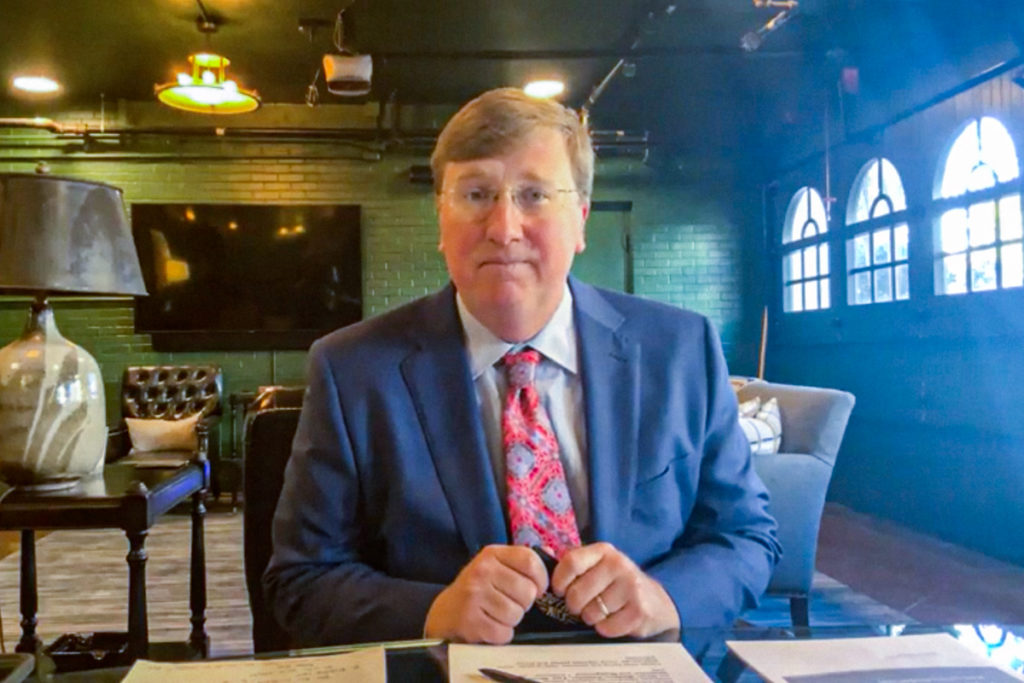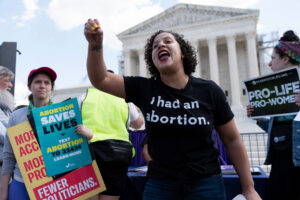A new study suggests a statewide mask mandate would boost Mississippi’s economy, but that Gov. Tate Reeves’ current strategy of implementing mask mandates on a county-by-county basis may be harming business.
After examining data from across the country, four professors at the University of Utah’s David Eccles School of Business found that statewide mask mandates “reduced case growth and promoted economic activity.” County mask mandates also helped curtail transmission, but “depressed economic activity,” the researchers found.
Maclean Gaulin, an assistant accounting professor and one of the Nov. 24 study’s authors, told the Mississippi Free Press yesterday that county-level mandates could make people more wary of going out by sending the message that infection is worse in their area.
“The analogy I like to use, and maybe this is a bit macabre, but if the president were to come out and say a meteor is going to hit the United States in any given county, you wouldn’t necessarily leave your home,” said Gaulin. “But if a county says a meteor is going to hit your home, you’re probably going to take a vacation.”
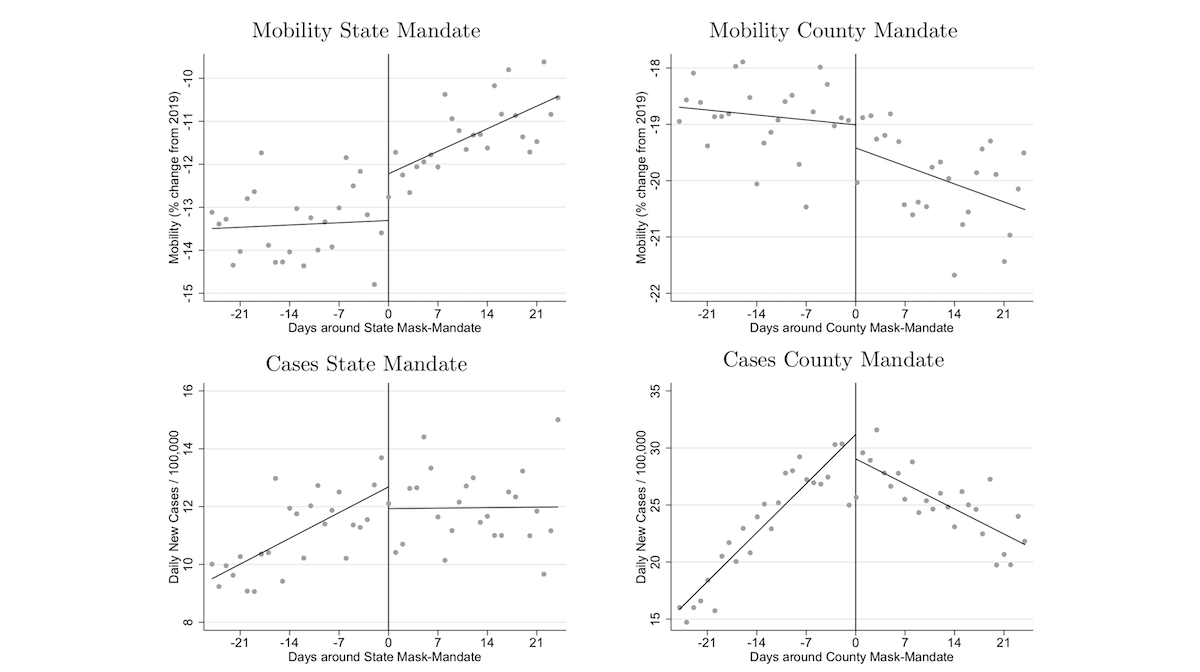
The researchers used GPS-based cellphone mobility data from Google and credit-card transaction data from Safegraph/Facteus to measure changes in consumer activity across the country.
They also surveyed consumers in Utah, who reported “a 49% higher likelihood of going out to a store if their state enforces a mask mandate” and a 15% higher likelihood of going out to a store in response to a 10% reduction in confirmed cases. Gaulin published the report alongside fellow University of Utah professors Nathan Seegert, Mu-Jeung Yang and Francisco Navarro-Sanchez.
‘A Targeted Approach’
Throughout the pandemic, Gov. Tate Reeves has repeatedly emphasized his preference to respond to the COVID-19 with measures that do the least economic damage. He first introduced county-level mask mandates as the summer wave exploded in late July before moving to a statewide mask order on Aug. 4, driving cases down significantly.
“We took a targeted approach, and we’ve been willing to fight through a very, very challenging time. … We cannot allow our system to collapse and we should not use the heavy hand of government more than it is justified,” Reeves said on Sept. 30, the day he allowed the statewide mandate to expire. “We have to tailor our actions to our current threat and make sure it does not go on what is reasonable.”
In the two months since, the seven-day average for daily new cases has nearly tripled from 500 on Sept. 30 to 1,410 today. Yesterday, COVID-19 hospitalizations surpassed their summer peak, reaching 1,008. Today, that number rose further to 1,057.
Setting new records on a regular basis. Healthcare is an exhaustible resource.
Please be safe and protect your family.
– Avoid social gatherings and anything that is not essential for your livelihood. pic.twitter.com/U5ByRMmh3J
— thomas dobbs (@TCBPubHealth) December 1, 2020
As cases continued to rise, Reeves began reintroducing county-level mandates, starting with nine of the worst hit counties in mid-October.
The orders apply to counties that have reported at least 200 cases over the past two weeks or 500 cases per 100,000 residents over the same period. By Nov. 24, half of Mississippi’s counties met the criteria and Gov. Reeves expanded the order.
But even county mandates that were based on local leaders’ preferences, not statistical criteria, had a “dampening” effect on economic activity, the University of Utah study found.
“We find that state mask mandates stimulate the economy. … Specifically, mask mandates at both levels signal that economic activity is safer—stimulating the economy,” the report reads. “However, when a county enacts a mask mandate, people also believe the risk from COVID-19 in their local area is higher—dampening economic activity.”
‘Good for Mississippi’s Health and Economy’
As he announced the new order to include 41 counties overall last Tuesday, Gov. Reeves lashed out at four top medical leaders in the state who urged him in a letter to reinstate a statewide mask order.
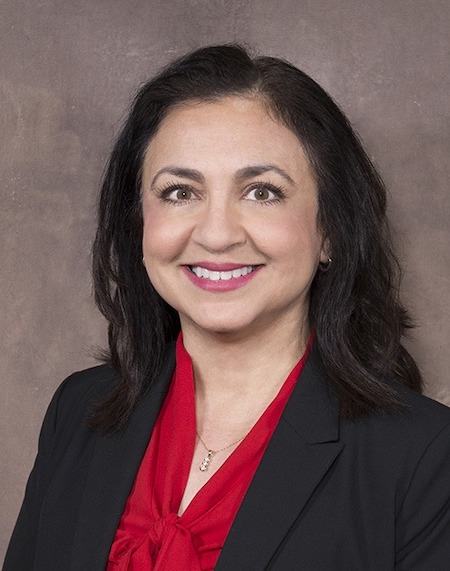
“I get frustrated when so-called experts decide that if we just did one more thing, that we could change this,” the governor said last week when asked about the doctors’ letter.
Dr. Anita Henderson, a Hattiesburg clinic pediatrician who signed onto the letter last week, raised the economic benefits of a statewide mask mandate two weeks ago.
“It is an inconvenience maybe, but if it saves lives and keeps businesses open then really what is the harm?” Henderson, who is the president-elect of the American Academy of Pediatrics Mississippi Chapter, tweeted on Nov. 14, tagging Gov. Reeves.
Then, days after the University of Utah study released its study, Henderson cited its findings, writing that “a statewide mask mandate would be good for Mississippi’s health AND economy.”
Benefits Smaller in Conservative Counties
The report does come with caveats, though.
“We find that mobility increases after a state-enforced mask order, but substantially less so in conservative counties” than in liberal ones, the report reads. It defines “conservative counties” as ones that “recorded more votes for the Republican presidential candidate in 2016” than the Democratic one.
The researchers theorize that statewide mask mandates signal to liberals, “who previously thought the risks were high,” that it is now safer to go out, leading them to “start going out and spending with a new confidence that comes with the mandate.” The positive spending effect is more muted for conservatives who had a lower risk assessment before the mandate’s enactment, the report says.
Still, the research found that statewide mandates provide economic boosts in both conservative and liberal counties, even if the effect is heightened for the latter.
But the researchers observed that county-level mandates drove consumer mobility down in conservative counties, while boosting it only slightly in liberal counties.
“These findings suggest that people in liberal counties either had a higher prior risk assessment or did not view the county-level mask mandate as providing much new information about local infection risks,” the report says.
The researchers also found that “confirmed cases decrease substantially less in conservative counties in the days immediately following state-level mask mandates” than in liberal ones.
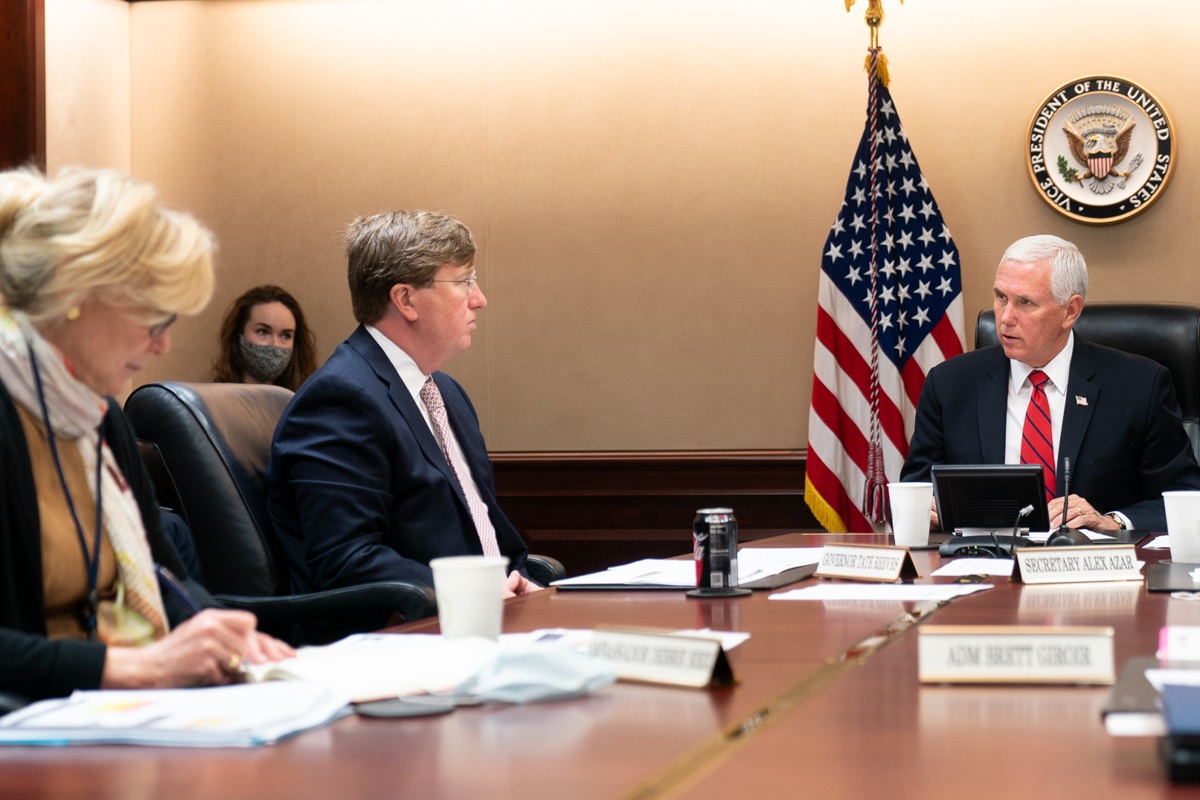
Gov. Reeves, a Republican himself, has struggled to get officials and residents to follow his mask order in some conservative counties. In DeSoto County, top GOP officials, including the sheriff, have refused to enforce or back the governor’s mask mandate for the county—even as local hospitals now report just two ICU beds and regular staffed bed remain available.
“In counties where mask mandates are in place, we’re seeing significantly better participation by our citizens,” Gov. Reeves said during a Nov. 24 press conference, defending his decision to continue with county-level mask orders instead of a statewide one. “We have some leaders in some communities who for whatever reason don’t think masks work. I think the data is very clear that our approach can and will lead to the best outcome.”
In recent weeks, though, Mississippi State Health Officer Dr. Thomas Dobbs has admitted that results from the current crop of county-level mask orders have been mixed.
Yesterday, Mississippi hit a new high for COVID-19 hospitalizations after a record-breaking weekend. On its social-media accounts, the Mississippi State Department of Health warned residents that the hospital system is in danger statewide amid what health officials are predicting will be a holiday deluge of new cases, hospitalizations and deaths.
“We’ve returned to the serious shortage of hospital care that we saw in the summer,” MSDH said. “Mississippians took swift measures to turn that situation around then. We need to do it again now. Avoid crowds, keep gatherings small, socially distance, and wear a mask.”


